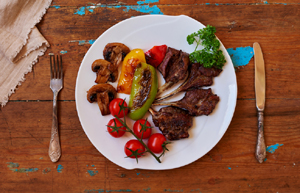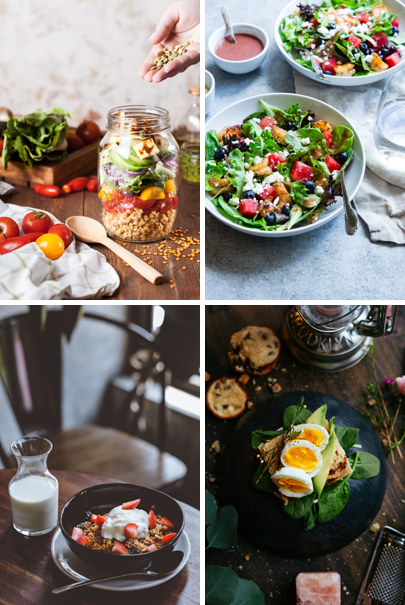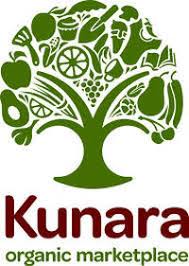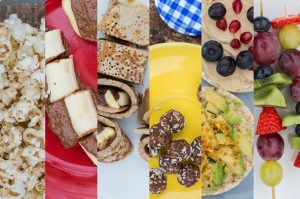Healthy Eating for Two
Some great sources of information about healthy eating and nutrition in pregnancy, with local resources and links to some fantastic research and information resources. Some of this information you may not find on general mainstream health sites, so make sure you do your own research and make your own decisions. There are some research links provided.
Pregnancy - eating to keep you and baby well
Pregnancy is a time when there are extra demands on the mother's system, to supply nutrients and building blocks for the baby's growth and development, and to keep the immune system strong. I'm going to put some links here to articles with interesting researched content, that may help to provide ideas to achieve optimal wellness during your pregnancy and after... Ultimately, research the questions you want answered, being informed is powerful in every arena!
There is a common list of 'foods best avoided' while pregnant, such as processed deli meats, and soft-serve ice-cream. This is a common list published at government agencies. Many of these foods provide no health benefits anyway, and should be avoided at any and all stages of life!
And some of the food warnings are more because of common issues with hygeine of food preparation and delivery, and avoiding toxins and parasites which can harm your baby. Good hygeine around food transporting (after you purchase), storage, preparation, cooking and serving are always necessary, and particularly when you are providing for your unborn baby. These practices are good during ALL of your life too.
So, a diet of good, real, whole foods, hygienically prepared and stored, is the best basis of a good diet, pre-pregnancy, during pregnancy and post-pregnancy.
Organic and unsprayed foods where possible (local and from known healthy growing countries) can help you to avoid the unknown things in your foods that you definitely want to avoid for your baby's sake - GMO, hormones, antibiotics, chemical fertilisers, chemical pesticides.


Nutrition at a bare glance:
Protein provides the necessary amino acids to create new cells for your baby and good protein intake has been recommended to help prevent PRE-ECLAMSIA - see below. Protein comes in the form of meat, beans (legumes), nuts, eggs, dairy.
Fats are absolutely essential for nerve and brain development in the baby, and brain, health and happiness in the mother! Don't avoid full fat foods, just choose the healthy versions! Healthy fats are found in healthy oils such as good quality olive oil, coconut oil (yes, it has been shown to be wonderfully healthy), macadamia oil, hemp seed oil and many others. Best to keep away from cheap oils like canola (see why here) and polyunsaturated vegetable oils! Fat rich foods include avocado, nuts, and oily fish like salmon and sardines... And, full fat has been demonised often, but many studies have shown the health benefits from these are many!
Carbohydrates provide energy and fuel for cells, and are easily obtained together with fibre in fruit and vegetables, wholegrain cereals. Unprocessed carbs are far better than processed ones like white bread and pasta, packs of biscuits, chips and cereals, etc, that contain lots of sugar, preservatives, trans-fats (to preserve them and give a long shelf life).

Further reading you may not have seen...
Eating for fertility
Lots of points open for discussion, including full fat V low fat: "However, fat, including butterfat, is an important source of fat soluble vitamins (Vitamins A, D, E, K) which are the very nutrients that are essential for the reproductive process. A recent study of over 18,000 women found that low-fat dairy products may actually increase the risk of anovulatory infertility, while full-fat dairy products actually decrease the risk of infertility. "
A Mediterranean Diet reduces risk for pregnancy complications!
Australian Study of more than 3500 women: "Somehow eating a diet based on extra virgin olive oil, fish, fruit and vegetables protects pregnant women and their babies from harmful pregnancy complications, such as preeclampsia and preterm birth."
Natural health dietary recommendations
"A good pregnancy diet helps you feel better and builds up your body – giving you an excellent chance at a natural birth. Pregnancy is not a time to loose weight or to go on restrictive diets that may compromise the health of you or your child! Modern advice says women should restrict their intake (and fats). This is dangerous for you and for your baby. Use this strategy instead – remove processed, refined foods full of sugars and empty calories. Replace them with nourishing whole foods."
Helping to avoid pre-eclampsia
"One of the first symptoms of preeclampsia is excess protein in the urine. This may lead many women to think that they must be getting too much protein in their diet and that may be causing the problem. But this is untrue. It actually means they are not getting enough protein in their diet. If a pregnant woman is not getting enough protein in her diet, the body will start to break down it’s own tissues to try to nourish the baby with enough protein."
Lots more on pre-eclampsia and pregnancy studies
Index of 36 abstracts with pre-eclampsia research
Diet plays a role in reducing prenancy health risks.
"Based on a limited number of studies, higher total energy and lower magnesium and calcium intake measured during pregnancy were identified as related to HDP. Further prospective studies are required to provide an evidence base for development of preventive health strategies, particularly focusing on dietary factors during pre-pregnancy and early pregnancy."
Thyroid Health and pregnancy
For pregnant women, it is crucial to pay attention to your nutrition and taking extra care, as the body changes dramatically during pregnancy. Pregnancy poses a huge impact on the thyroid, particularly in the first trimester where the baby relies on the mother’s production of the thyroid stimulating hormone (TSH). The HCG hormone stimulates the thyroid gland to produce more TSH as it is critical for foetal development.
If the mother is not consuming enough iodine and/or her thyroid health is impaired due to diet or lifestyle factors, it may result in huge repercussions in either the baby’s or the mother’s health. The two most common thyroid problems stemming from an autoimmune base are Hashimoto’s (hypothyroidism) and Grave’s (hyperthyroidism) disease.
Food Matters .com This is the most amazing website, dedicated to all things health and real nutrition, that has millions of followers globally. It is the work of a Sunshine Coast couple James Colquhoun and Laurentine ten Bosch who had a very long journey of discovery to real health. There's even a Food Matters movie channel that has soooo much to offer for those who want to have positive healthy viewing instead!! I've taken you to a page with an announcement of the recent changes they've incorporated to make health easier for everyone.
Local Healthy Sources...
"Over 18,000 natural and organic products including fruit and vegetables, naturopathic services, natural beauty therapists, organic and gluten free specialty food from our café, a native and eco-friendly garden centre, a wholesale warehouse and manufacturing plant, like-minded neighbours including an organic butcher, Synerji natural fibre clothing boutique and holistic health practitioners."
Local farms and farmers! Food produced with love and delivered to doors around the Sunshine Coast and Hinterland. We are here to make your life EASY. We deliver the freshest, organic fruit & veggies to your door, Giving you time back to do the things you love.
Jamie Oliver - Healthy snacks for kids (and families)
For many parents and kids, snacks are unhealthy treats – packets of crisps, cupcakes, or little chocolate bars – but this doesn’t have to be the case. There are so many really tasty things we can snack on that are just as cost-effective, and are also just as easy to buy or make.
HABITS Healthy snacking is reliant on planning and shopping. What we have in our cupboard is what we are going to graze on at home. A little planning before visiting the supermarket goes a long way towards having things we want to eat in our cupboards, and reducing the number of things we might not want our kids (or ourselves!) to eat. If we want to eat less cake, chocolate and crisps, then buying less (or none at all) in the supermarket is a good place to start....



